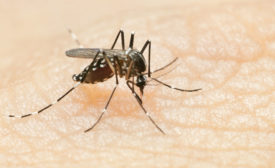News
U.S. Dept. of Labor Blog post
Transparent data will make workplaces safer. Here's how.
May 16, 2016
Alarm fails to sound after ammonia leak
Mass. food manufacturer cited for PSM deficiencies
May 13, 2016
ASSE: New recordkeeping rule is “a step backward”
Worst employers may report even fewer incidents
May 12, 2016
Are low wages an occupational health hazard?
Raising minimum wage would have health benefits, evidence suggests
May 12, 2016
Never miss the latest news and trends driving the safety industry
eNewsletter | Website | eMagazine
JOIN TODAYCopyright ©2024. All Rights Reserved BNP Media.
Design, CMS, Hosting & Web Development :: ePublishing







